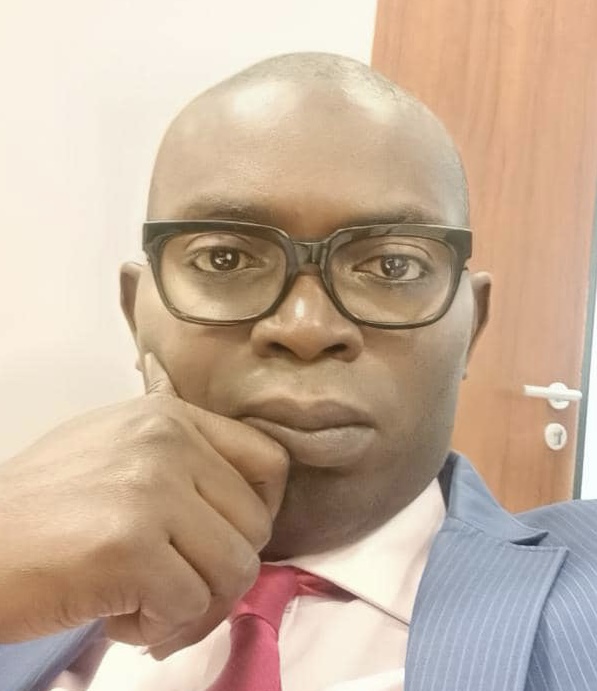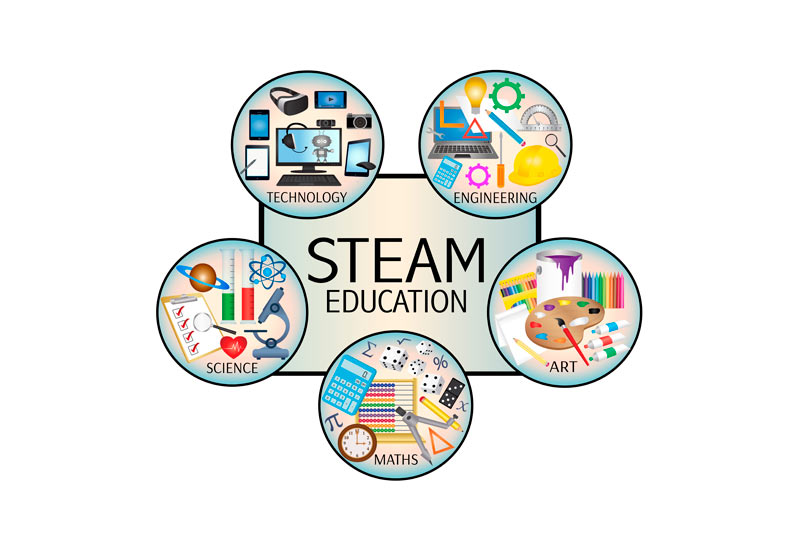No other investment yields as great a return as the investment in education. An educated workforce is the foundation of every community and the future of every economy. – Brad Henry, 26th Governor of the State of Oklahoma, USA
If there is any time the common saying, “Knowledge is power” (“scientia potentia est” in Latin), holds the greatest meaning to humanity, it is now. The global economy is commanded by economies that are knowledge-based as against their agrarian and commodity-based counterparts. The top 10 economies by Gross Domestic Product (GDP), namely United States, China, Japan, Germany, India, United Kingdom, France, Italy, Brazil, and Canada, are knowledge-based. They alone command about 66 percent of the world’s economy.
With a GDP of $2.94 trillion, India overtook UK and France to become the fifth-largest economy in 2019. India’s GDP in 1980 was just $189.439 billion and ranked as 13th largest global economy. But through “Make in India”, a major national programme fashioned to facilitate investment, foster innovation, enhance skill development, protect intellectual property, and build world class manufacturing infrastructure, the country rose from an agrarian economy to build a strong manufacturing and services sector. India’s service sector is rated the fastest growing in the world, contributing over 60 percent to the economy and employing 28 percent of her workforce.
But the Miracle on the Han River, as South Korea’s transition from one of the world’s poorest nations to an industrialised and high-tech nation in a few generations is popularly referred to, should interest us more as Nigerians. While Nigeria swims in abundant natural resources, South Korea, almost bereft of any, joined the club of trillion dollar economies in 2004.
Advertisement
Today the South Korean knowledge-based economy is the 12th largest in the world by GDP and 4th in Asia, just behind China, Japan, and India, in that order. Korea is one of the leading exporters of electronic products, machinery, motor vehicles, steel, ships, and textiles and clothing, etc.
According to Statistica, with a combined gross tonnage of about 11.5 million in 2019, South Korea is only second to China (with 11.8 million) as a leading shipbuilding nation. Its Hyundai Heavy Industries (HHI) in Ulsan is the world’s leading shipbuilding company, wowing the world with ingenuity even in naval and special ship manufacturing. Daewoo Shipbuilding & Marine Engineering in Seoul, Samsung Heavy Industries in Geoje, and STX Offshore and Shipbuilding in Jinhae, all Korean, are other top shipbuilders.
The International Organisation of Motor Vehicle Manufacturers ranks Korea 7th in car manufacturing. Korea manufactures more cars than Russia, France, UK, and Brazil.
Advertisement
Although South Korea relies on iron ore imports (remember it is almost bereft of mineral resources, unlike Nigeria), she is the world’s 6th largest steel producer, rolling out 71.4 metric tons in 2019, according to World Steel Association.
The Incheon International Airport, South Korea’s largest airport, reflects her economy. It was ranked the world’s 4th busiest airport (3rd in Asia) in 2017 by cargo traffic and world’s 19th busiest airport (9th in Asia) by passenger traffic. It served a whooping 70,857,908 passengers in 2019 alone and won Skytrax World Airport of the Year award in 2012 as well as World Best Transit Airport and World Best Airport Terminal in 2020.
I am passionate about Korea because of her peculiar story. I have also used the Incheon airport, toured the Kia and Hyundai automobile manufacturing, the steel rolling mill, and I have been to the Hyundai shipyard, which stretches over four kilometers along the coast of Mipo Bay in Ulsan. One cannot but weep for our dear nation each time one remembers that the Asian nation’s deliberate and rigorous education system, a highly inspired and educated population spurred her rapid economic development and high-tech boom.
Like China and Singapore, which have equally successfully linked education and economic prosperity, the Korean story shows that no nation can develop beyond the quality of her education. These countries have all invested heavily in vocational education and training connected with Science, Technology, Engineering, and Mathematics (STEM, now STEAM) education. They have championed ICT education and funded Research and Development (R&D) and leadership training. Let us not forget that Singapore was ignominiously expelled from the Malaysian federation by the Parliament of Malaysia by 126–0 votes in the morning of August 9, 1965. Today, Singapore is a cynosure of all eyes.
Advertisement
Again a look at the list of the twenty-seven richest men/families in the world today shows that only Andrew Forrest Laurie (Australia), who is worth $14.4 billion, is into mining. And apart from Beat Heister & Karl Albrecht, who spin their wealth through supermarkets, the rest of the ten richest men, from Jeff Bezos (US), whose Amazon is worth $204.6 billion to Li Ka-shing (Hong Kong) with diversified businesses worth $28.6 billion, are production, ICT, service, and value addition, etc. driven.
It naturally means that Nigeria’s hope rests on knowledge-driven economy where the key element of value, according to Adam Hayes, is the greater dependence on human capital and intellectual property for the source of the innovative ideas, information, and practices.
I have taken time to put these things in perspective for us to appreciate the Seplat Petroleum Development Company new educational programme, Seplat Teachers Empowerment Programme (STEP), targeted at secondary school teachers.
According to a statement by the company’s General Manager, External Affairs and Communications, Dr. Chioma Nwachuku, a total of 100 teachers and 43 Chief Inspectors of Education (CIEs) drawn from Edo and Delta states are currently benefitting from the maiden edition of STEP.
Advertisement
She explained that the programme was designed to promote teachers’ creative thinking, facilitate higher student engagement, and offer a well-rounded education for recipients of the initiative.
The five-day residential workshop introductory phase kicked off a six-month programme specially designed for teachers to provide them training on teaching applications for Science, Technology, Engineering, Arts and Mathematics (STEAM) as well as leadership and self-improvement.
Advertisement
“With the STEP programme, the company now has a full bouquet of programmes to address the entire education value chain. Our programmes now cover improving school infrastructure, enhancing academic performance of students, and building the skills and competencies of teachers,’’ Seplat stated.
According to company, it developed an online teachers’ resource centre, which provides the beneficiary teachers access to inclusive learning, highlighting best techniques and practices for implementing STEAM teaching methods and assist them to learn to use such methods in the classrooms.
Advertisement
It observed that the e-platform would provide and connect teachers to a collection of STEAM resources to enable them to understand, teach and demonstrate effectively to their students. The first set of teachers from the STEP initiative would graduate in the first quarter of 2021.
Importantly, the selection was through a competitive process. 389 teachers from secondary schools in Edo and Delta states sat for the qualifying test online in September this year to compete for the available 100 places.
Advertisement
Seplat’s approach to this initiative equally shows that it has its eyes on the bigger picture, ensuring that teachers in private schools equally benefit from a training that will contribute a lot to shaping Nigeria’s future. Of the 100 beneficiary teachers, 75 per cent is from public schools, while 25 per cent is from private schools.
While the STEP initiative is highly commendable, many are not surprised, given the underlying philosophy of the founders of the organisation, like its Chairman, Dr. A.B.C Orjiako and because it is coming from a corporate entity with a laudable track record in enhancing the quality of education many Corporate Social Responsibility (CSR) programmes. For instance, Seplat recently concluded the Seplat PEARLs Quiz, where 574 schools drawn from Edo and Delta States participated. The competition, according to the company, “aims to promote and reward academic excellence amongst secondary school students”. With a corporate philosophy, which sees the host communities as key stakeholders/co-owners of its business, Seplat has additionally excelled in providing other supports such health services, scholarships, and social infrastructure to the communities.
By the STEP initiative, Seplat has demonstrated again that it thinks not only about making profit, but also about helping to shape the nation’s future by building the intellectual capital that will launch her unto the realms of real prosperity. This step is not only laudable, but also worthy of emulation by other corporate organisations in order to move Nigeria forward.
Anichukwu writes from Abuja
Views expressed by contributors are strictly personal and not of TheCable.
Add a comment







